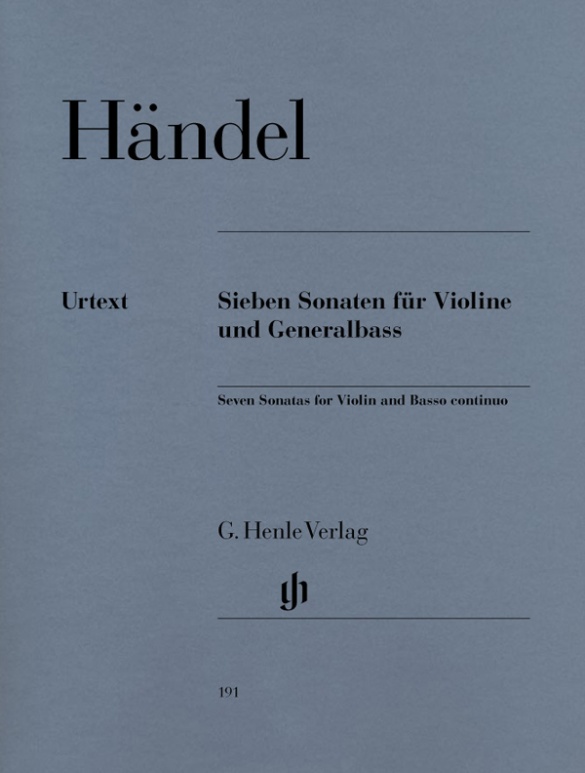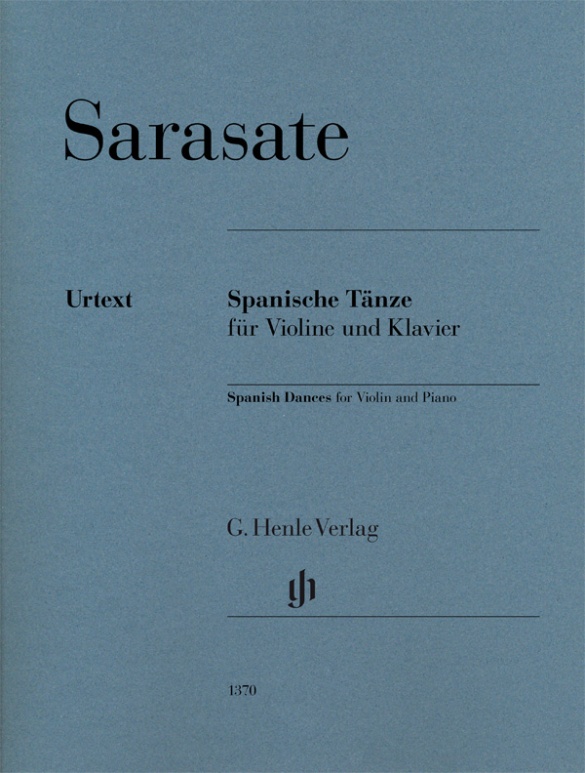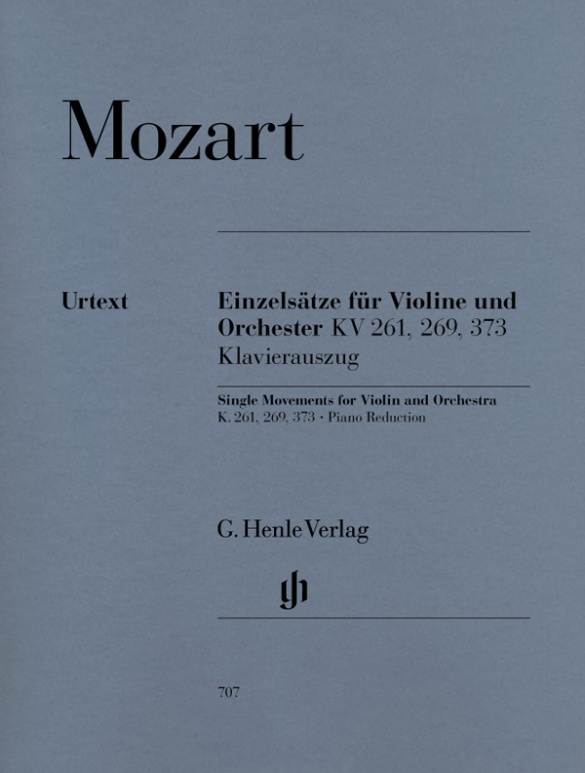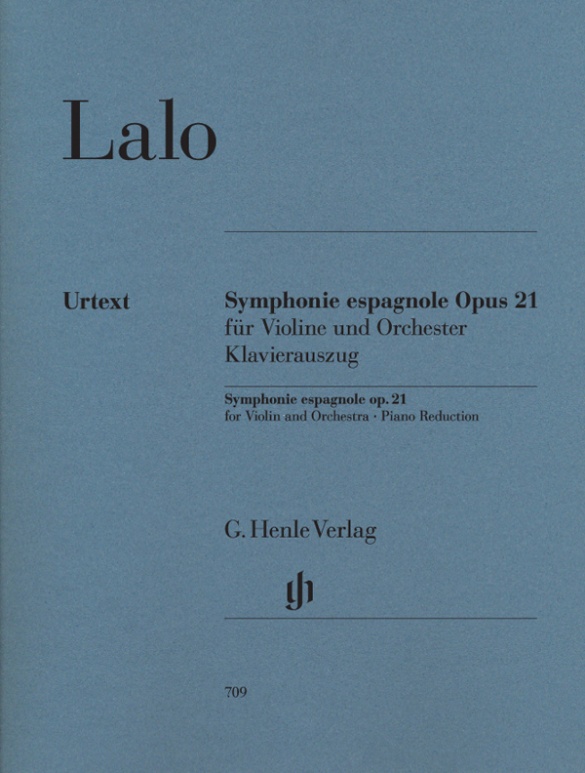

Edouard Lalo
Symphonie espagnole d minor op. 21 for Violin and Orchestra
The Symphonie espagnole for violin and orchestra, perhaps Lalo’s best-known composition, is found in the repertoire of violinists everywhere. The première on 7 February 1875 was greeted by storms of applause from the Parisian audience and marked Lalo’s breakthrough. He wrote the work for his friend Pablo de Sarasate, who played it at his concerts and quickly made it known throughout Europe. This edition is the first to make use of Lalo’s autograph manuscripts.
Content/Details
About the Composer
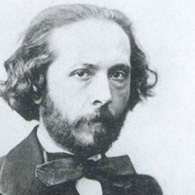
Edouard Lalo
A French composer and violinist. Musically he felt drawn to German traditions, which is reflected in his compositions; but at the same time his works demonstrate predilections for rhythmic quirks and folkloric elements. His output includes violin concerti, song cycles, symphonies, operas, and chamber music. He was a member of the Société Nationale de Musique.
| 1823 | Born in Lille on January 27. |
| from 1833 | Studies violin with Joseph Müller and composition with Pierre Baumann at the Lille Conservatoire. |
| around 1839 | Takes private violin lessons in Paris, including with François-Antoine Habeneck. |
| around 1845 | He becomes a pupil of Julius Schulhoff and Joseph-Eugène Crèvecœur. |
| 1848 | Cofounder of a politically-oriented union of musicians supporting the revolution. |
| 1849 | Hired by the orchestra of the Opéra-Comique. |
| 1850 | Under the baton of Hector Berlioz he plays in concerts of the Grande Société Philharmonique. |
| 1850–56 | He writes chamber works including the two Piano Trios, op. 7 and without opus number, and the Sonata for Violin and Piano, op. 12. |
| 1856 | On January 30, the Quatuor Armingaud makes its debut in Paris with Lalo on second violin. |
| 1865 | On July 6 he marries for a second time, to contralto Julie Bernier de Maligny, who inspires him to compose songs. |
| 1874 | He writes his Violin Concerto no. 2 in D major, op. 21 (“Symphonie espagnole”), dedicated to Pablo de Sarasate. |
| 1878 | The Institut de France honors him with the Prix Chartier. |
| around 1881 | He composes the commissioned ballet “Namouna.” |
| 1888 | His opera “Le roi d’Ys” is performed for the first time in Paris. |
| 1892 | Dies in Paris on April 23. |
About the Authors

Peter Jost (Editor)
Dr. Peter Jost, born in 1960 in Diefflen/Saar, read musicology, German and comparative studies at Saarland University in Saarbrücken. He did his PhD in 1988 with a thesis on Robert Schumann’s Waldszenen.
From November 1991 to April 2009 he was a research associate at the Richard Wagner Complete Edition in Munich, and since May 2009 has been an editor at G. Henle Publishers. His Urtext editions comprise predominantly French music of the 19th and 20th centuries, including works by Lalo, Saint-Saëns and Ravel.
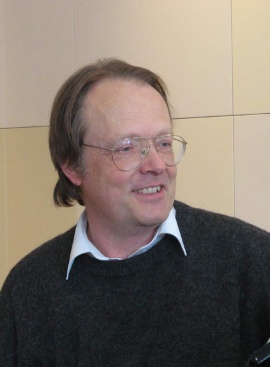
Johannes Umbreit (Piano reduction)
Prof. Johannes Umbreit studied the piano at the Musikhochschule in Munich. From 1987 onwards he was a regular accompanist at courses given by Wolfgang Schneiderhan, Thomas Brandis, Ljerko Spiller, Igor Ozim, Olga Woitowa, Ernő Sebestyén, Walter Nothas, F. Andrejevsky, Denis Zsigmondy and Zakhar Bron amongst others. He has appeared in numerous radio and TV broadcasts and plays chamber music with members of the Bavarian State Orchestra, the Munich Philharmonic Orchestra and the Bavarian Radio Symphony Orchestra.
He is on the jury of different international competitions and has been invited to several international music festivals. Umbreit was a teacher for almost ten years at the Musikhochschule in Munich and at the same time a lecturer for chamber music and piano accompaniment at the Richard Strauss Conservatory. Since 2008 he has been a lecturer at the Hochschule für Musik und Theater München. As the long-serving managing director of the Richard-Strauss-Gesellschaft, he was made an honorary member of the board in 2009. In May 2011, the Bavarian Minister of Culture appointed Johannes Umbreit an honorary professor of the Hochschule für Musik und Theater München on the suggestion of its academic senate.
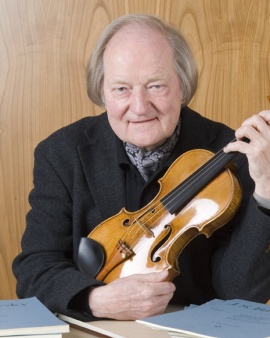
Kurt Guntner (Fingering and bowing for Violin)
Prof. Kurt Guntner was born in Munich on Mozart’s 183rd birthday. He studied the violin with Ludwig Ackermann, Max Rostal and Henryk Szeryng. At the age of 18, he made his solo debut in the Kongreßsaal at the German Museum in Munich, performing Beethoven’s Violin Concerto with the Munich Philharmonic Orchestra. At the age of 22 he was appointed first concertmaster with the Bavarian State Orchestra. After 10 eventful years at the Bavarian State Opera with conductors such as Ferenc Fricsay, Joseph Keilberth and Hans Knappertsbusch, Rudolf Kempe invited him to become the first concertmaster with the Munich Philharmonic Orchestra, giving him the opportunity to perform the violin solo in many of the great violin concertos.
Of particular appeal were the BR’s invitations to perform and record great violin concertos that were seldom played, including those by Casella, Schillings, Szymanowsky. Kurt Eichhorn initiated this series– Jan Koetsier, Marek Janowski and others conducted other concertos. Kurt Guntner was also first concertmaster with the Bayreuth Festival Orchestra for many years, and played with the Munich Bach Orchestra under Karl Richter, in the Association of Soloists in The Bach Week in Ansbach and with the Münchner Bachsolisten. In 1972 he founded the internationally acclaimed ODEON-TRIO, together with the cellist Angelica May and the pianist Leonard Hokanson, touring all over the world with them for 25 years. In 1976 Guntner was called to the tenured chair of violin at Munich’s Hochschule für Musik und Theater, teaching students from around the world for 28 years.
He made numerous recordings for radio, television, record and CD. Karl Schumann described Guntner’s broad musical personality thus: “Kurt Guntner is a practical orchestral musician, soloist, chamber musician and educator in one person”.
In 1997 Kurt Guntner was awarded the order of merit (first class) of the Federal Republic of Germany.
Kurt Guntner died on 9 January 2015 in Munich.
He was closely associated with G. Henle Publishers for several decades. Since the end of the 1980s he had produced numerous Urtext editions of works for violin for the publishing house, sharing pedagogically polished bowings and fingerings for different works including violin concertos by Bach, Haydn, Mozart, Bruch and Tchaikovsky, as well as numerous other editions.
Product Safety Informations (GPSR)

G. Henle Verlag
Here you can find the information about the manufacturer of the product.G. Henle Verlag e.K.
Forstenrieder Allee 122
81476 München
Germany
info@henle.de
www.henle.com
As befits this publishing house, the piano reduction and solo violin part are carefully edited with attention to detail and phrasing and fingering suggestions are idiomatic.
Stringendo, 2003The Symphonie Espagnole … is one of four major orchestral works. … This edition is a reduction for piano and violin and is based on an autographed copy dated the same year as the original orchestral version.
Sheet Music, 2002Was die Ausgabe auf jeden Fall empfehlenswert macht, ist, daß die Fingersätze von Kurt Guntner auf sehr umsichtige Weise auf den heutigen Stand der Violintechnik gebracht wurden, wie sie sich seit Galamian & Co. weltweit durchgesetzt hat. Denn dieses Werk liegt so gut in der Hand, daß zumindest die ersten drei Sätze vom griffsicheren Liebhaber mit Genuß bewältigt werden können. Und den sollte man sich doch nicht entgehen lassen.
Das Liebhaberorchester, 2002recommendations
autogenerated_cross_selling
Further editions of this title
Further editions of this title


